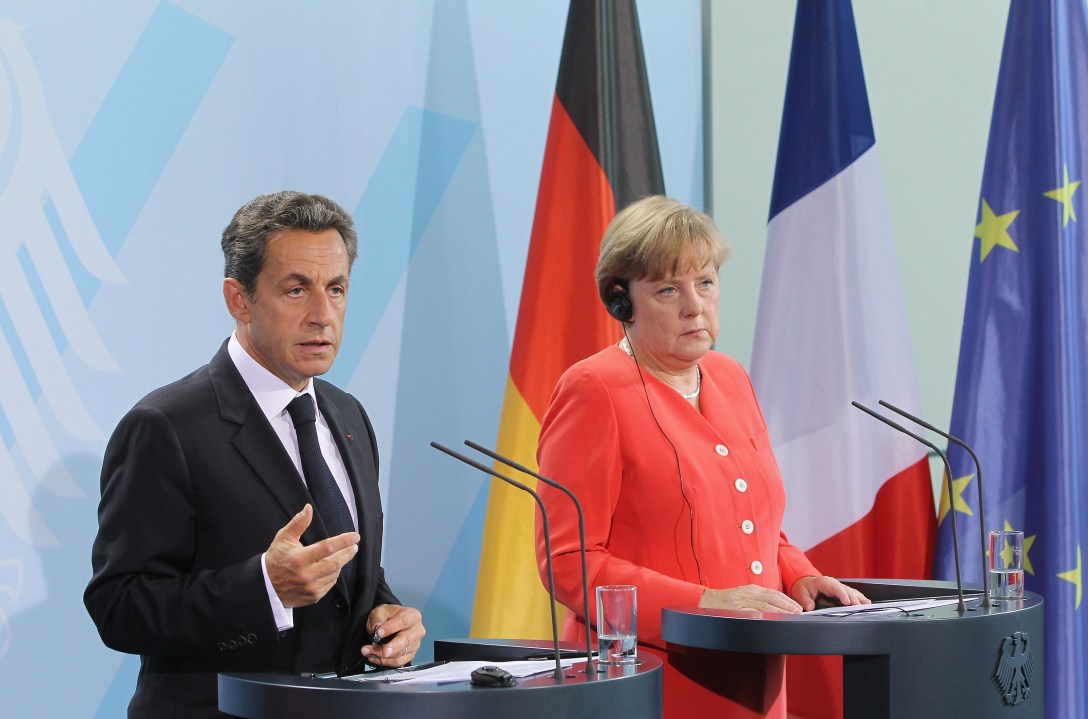 August is supposed to be a languorous month, but fevered economic worries have dispelled the illusion of ease. Eurozone finance
ministers will meet tomorrow to discuss the single currency, again. The luxurious coffee tables at the summit venue will be sullied by an article authored by global finance ministers, including George Osborne, who insist that the Eurozone take
decisive political action to reassure the markets. The answer to this crisis, the ministers argue, is political integration.
August is supposed to be a languorous month, but fevered economic worries have dispelled the illusion of ease. Eurozone finance
ministers will meet tomorrow to discuss the single currency, again. The luxurious coffee tables at the summit venue will be sullied by an article authored by global finance ministers, including George Osborne, who insist that the Eurozone take
decisive political action to reassure the markets. The answer to this crisis, the ministers argue, is political integration.
There are indications that the Eurozone agrees: dramatic gestures are required. Last week, the European Commission abandoned numerous sacrosanct policies: freedom of movement across borders was suspended in Spain and the CAP is to be reformed. More importantly, Nicolas Sarkozy has declared his support for Eurobonds, a scheme backed by Italy and several other peripheral countries. Angela Merkel, meanwhile, opposes Eurobonds on grounds that they would destabilise the German economy. Her hand is being forced by the electoral concerns of her own party and coalition partner, both of whom are determined to resist costly integration.
The forthcoming summit is likely to be dominated by this confrontation between Merkel and Sarkozy (who are meeting privately beforehand), and the markets will be watching closely. Analysts have made clear that the Eurozone’s piecemeal approach is inadequate. The current mechanism, the EFSF, cannot solve the growing liquidity crisis in European sovereign and private debts because only the European Central Bank can print money and issue bonds. Chief Economist at HSBC, Stephen King, tells the Telegraph this morning:
“At the heart of the problem is the ECB’s unwillingness to be seen ‘monetizing’ government debt. Yet if the alternative to QE is the collapse of the euro or a descent into depression, then massive expansion of the ECB’s balance sheet seems a small price to pay.”
King’s small economic price attracts a colossal political surcharge: a dramatic treaty change to embolden the ECB and further erode Europe’s historic nation states without the consent of voters. Even if that is achieved, it won’t address the markets’ other major concern about Europe: from where is sustainable growth and competitiveness coming?







Comments